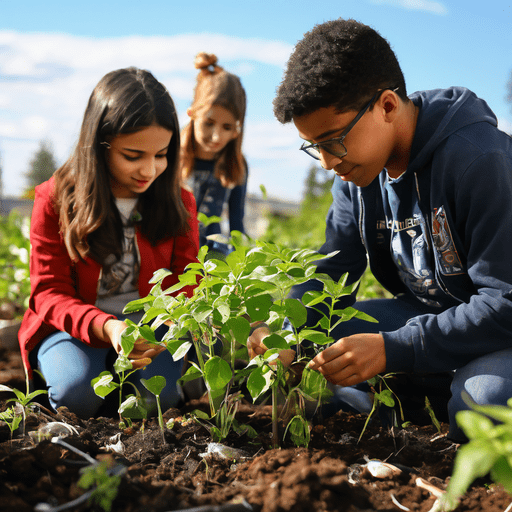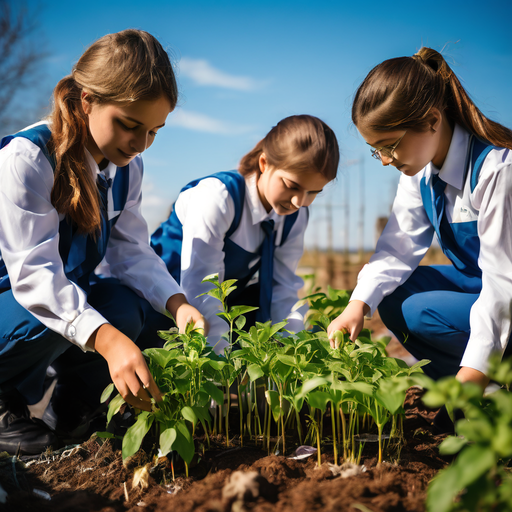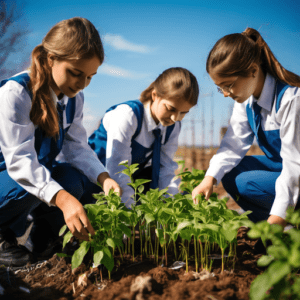In a bid to revolutionize agriculture education, the Delhi government has taken a remarkable step by introducing hydroponic systems in 100 government schools. This initiative aims to educate students about modern farming techniques and the potential to cultivate crops without traditional land usage. The hydroponic systems will serve as a practical learning tool, showcasing the future of farming.
Traditional Farming vs. Modern Methods
While traditional farming remains prevalent in India, modern technologies have been increasingly integrated into agricultural practices. These advancements have significantly enhanced productivity and profitability for farmers. Among these innovative methods, hydroponic farming stands out for its efficiency and resource optimization.

The Concept of Hydroponic Farming
Hydroponic farming is a soil-less cultivation technique that relies on water-based nutrient solutions to grow plants. This method utilizes pipes and controlled environments to cultivate a variety of vegetables. Hydroponics is renowned for its high yields and cost-effectiveness, making it an attractive option for farmers.
Benefits of Hydroponic Farming
Hydroponic farming offers several advantages over traditional methods. It requires less water and space, making it ideal for urban areas with limited land availability. Additionally, hydroponics eliminates the need for pesticides and herbicides, resulting in healthier produce.
Implementation in Delhi Government Schools
The Delhi government’s decision to install hydroponic systems in 100 schools is a commendable effort to introduce students to sustainable farming practices. These systems will serve as practical learning tools, teaching students about plant nutrition, pH levels, and water recycling.
Nodal Officers and Training Workshops
To facilitate the implementation of hydroponic systems, each school will nominate a nodal officer responsible for overseeing the setup and conducting workshops. These workshops will provide students with hands-on experience in managing hydroponic setups and cultivating crops.
Learning Opportunities for Students

Through the hydroponic systems, students will gain valuable insights into modern agriculture techniques. They will learn about nutrient management, pest control, and water conservation, preparing them for future challenges in agriculture.
Also Read https://yadfarm.com/gardening-on-rooftop-a-guide-to-rooftop-gardening/
Sustainability and Future Prospects
The introduction of hydroponic systems in schools not only enhances students’ understanding of agriculture but also promotes sustainability. By learning to grow crops without soil, students are equipped with valuable skills that can contribute to food security in the future.
Conclusion
The implementation of hydroponic systems in Delhi government schools marks a significant step towards modernizing agriculture education. By exposing students to innovative farming techniques, the initiative aims to prepare them for the challenges of tomorrow’s agricultural landscape.
Click Here For More Interesting News Articles
FAQs
What is hydroponic farming?
Hydroponic farming is a method of growing plants without soil, using water-based nutrient solutions.
How does hydroponic farming benefit farmers?
Hydroponic farming is known for its high yields and resource efficiency, making it a profitable venture for farmers.
What crops can be grown using hydroponic systems?
A variety of vegetables and herbs can be grown using hydroponic systems, including lettuce, tomatoes, and basil.
What is the role of nodal officers in the implementation of hydroponic systems in schools?
Nodal officers are responsible for overseeing the setup of hydroponic systems in schools and conducting training workshops for students.
How does hydroponic farming contribute to sustainability?
Hydroponic farming requires less water and space compared to traditional farming methods, making it a more sustainable option for agriculture.
Check Here https://yadfarm.com/gardening-on-rooftop-a-guide-to-rooftop-gardening/
Check Here https://yadfarm.com/what-are-hydroponics/
Check Here https://yadfarm.com/hydroponics-and-aquaponics-in-agriculture/










